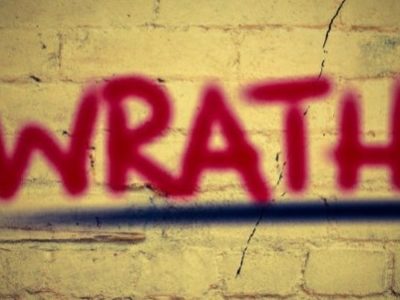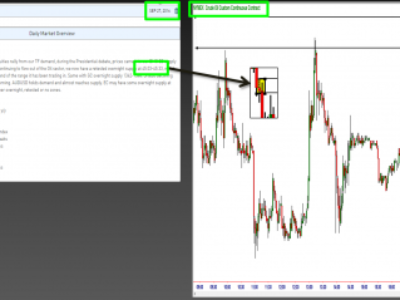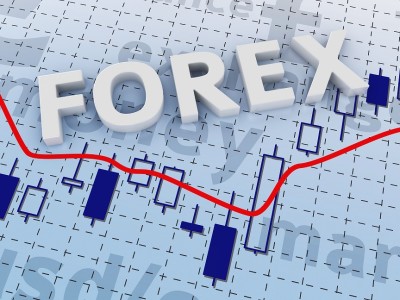5 Things Successful Traders Do Differently
1. They keep faith in their abilities during times of drawdown.
Despite what less experienced traders may think about professional traders, everyone has losing streaks at some point in time. You only need to look at the returns of currency hedge funds to see that even the “big boys” at the top go into drawdown. You are only as good as your last trade, but that doesn’t mean you’re a bad trader just because your last trade was a loss. One of the key differences between the amateur trader and the professional is the grounded confidence that the professional trader has in his own abilities. Whereas a professional trader remains confident in his own abilities during a poor run, an amateur will begin to question his whole outlook and strategy. What defines “poor performance” is going to be subjective from trader to trader depending on level of experience. For some it means moving sideways for a quarter, for others it means making fresh drawdowns. Regardless of the details of the poor performance, the professional trader knows that eventually he’ll get back on top; it’s just a matter of time until a flow of opportunities arrive which he can capitalise on and start printing fresh high-water marks. The amateur trader however, during times of poor performance, loses faith in his trading style and begins trying to look for new ways to “fix” the problem, failing to understand that losing is simply the cost of doing business as a trader. There is no single system for consistent profits in forex trading; rather, becoming a consistently profitable trader requires a depth of knowledge about fundamental economics and monetary policy, technical analysis, intermarket risk correlations, trading psychology and money management. This knowledge and set of skills takes years to develop, but once a trader has gained enough experience, they no longer look for new methods during drawdown, but rather wait patiently for good trades.
2. They do not trade every day or even necessarily every week.
The second difference between professional traders and amateurs actually leads on from the first difference; the professional trader lies in wait like a trapdoor spider, for days and weeks until the easy prey scuttles past the nest then – boom! The trader pounces. The pro lets the market provide the trading opportunities. Conversely, the amateur trader will go hunting high and low for the tiniest hint of a potential winning trade. There is really no need to go looking for trades, because if a trade is not obvious and clear then chances are the rest of the market is not going to see it and therefore a lack of participation will mean the pair is unlikely to move towards your own profit target. The professional trader keeps up to date with the news flow on a daily basis, but does not execute trades on a daily basis. He waits for large retracements against the fundamental bias to enter at excellent levels and also waits for surprising news that moves the market. The professional trader does not guess which way the market will move; he knows which way it is overwhelmingly likely to move. And once in a trade, he does not hope that the trade will move in line with his prediction; rather he keeps reading the data to check if incoming information confirms or discredits his initial, well-reasoned prediction. Contrast this with the amateur trader who chases moves in the market; they see a 40-pip rally in EURUSD and suddenly jump in to follow the market, only to discover the move was baseless and retraces. Amateur traders often think – especially intraday traders – that they must be taking little bites out of the market on a daily basis. However, the market simply does not provide predictable opportunities every day of the week and the professional trader knows this. When it comes to trade entries and profits – less produces more.
3. They manage their risk carefully.
A professional trader understands the importance of trade size and risks only a tiny amount of the total account on each trade. This means never losing more than 2% on a single entry and generally risking 0.5%-1% per trade. Further to this, a professional trader uses wide stop-losses and therefore even the losing positions take a long time to play out, during which time the trader can re-evaluate why the trade is not moving into profit and, if justified, can cut the position early. A good trader also implements a dynamic capital management system whereby they allow themselves to risk slightly more during good times and slightly less during bad times. An amateur trader usually tries to make an income from their personal account and this is a recipe for disaster. Often I’ll hear of a learning trader who’s wiped out a third or half their capital in a single week of trading. This simply would never happen to a professional because their risk per trade and total exposure at any given time is so low that it’d take six months of consecutive losses to incur such damaging drawdowns.
4. They look for small incremental returns over the course of 12 months.
Risk management is the cornerstone of successful trading. Dozens of times I’ve had someone comment on a post or email me saying “I turned $3,000 into $40,000 in just a few months” and they honestly believe this is good trading. The fact is they are guaranteed to blow up their account by moving up so quickly. Anything over 50-60% return per annum strongly suggests risky money management and therefore a high risk of ruin. Professional trades aim to make safe and incremental returns for their investors. They focus on protecting their capital and minimising drawdowns as a priority over making returns. A really good fund manager should make 25-40% per annum with a maximum drawdown of less than 5-10%. Stats like that will garner a lot of attention and attract massive amounts of institutional capital. And this is how a trader gets rich; he takes a small chunk of a very large pie. No one gets rich turning $3,000 into $40,000.
5. They ignore the noise and focus on the fundamentals.
What many traders fail to realise is that there’s a lot of participants in the foreign exchange market who are not speculators; all day, every trading day, there are business transactions going on that have nothing to do with speculation. At any given moment, 5 days per week, there is a business centre open somewhere around the globe and related currency exchange transactions are constantly occurring. For example, a Japanese sushi chain may be expanding into the US; they need to convert Japanese yen into 30 million USD to finance their new operations. This will influence price action. Another example: An Australian wheat exporter to Europe who receives payment in euros wants to hedge against a future appreciation of the Australian dollar by shorting 500 lots of EURAUD. Again this will influence price action. Transactions like these are going on all the time and they cause what professional traders call “noise”. This intraday random walk in price action can often have nothing to do with news flow and can just as easily move price against the current directional bias as with it. Whereas an amateur trader gets sucked into such price action and thinks some sort of huge move is starting for no reason, a professional trader remains on the sidelines and waits for some logical information to provoke an entry.
The post 5 Things Successful Traders Do Differently appeared first on Jarratt Davis.












